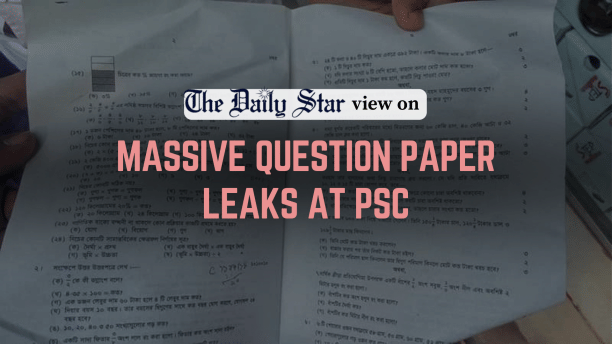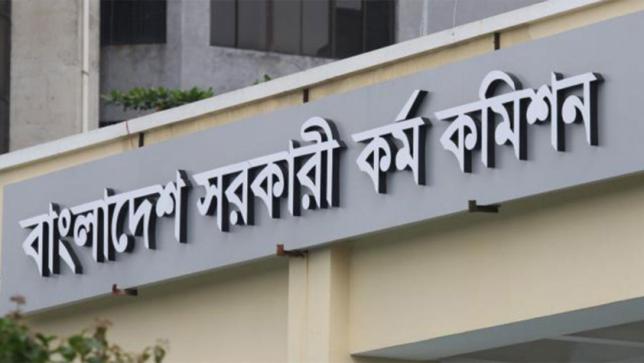Is the system rigged against meritocracy?

We are dismayed by the revelation of a question paper leak racket operating within the Bangladesh Public Service Commission (BPSC). According to a report by Prothom Alo, six officials of the commission and 11 others have been arrested by law enforcers for allegedly leaking question papers of various exams organised by the PSC. The group, according to Channel24, which broke the news after a sting operation, have sold question papers of at least 30 recruitment tests including Bangladesh Civil Service (BCS) exams for over a decade.
At a time when students across the country are demanding quota reforms in public service recruitment to make it more merit-based, the PSC scandal deals a heavy blow to our objective of having qualified professionals in public institutions. The leak shows how the system is still largely rigged against meritocracy, often allowing candidates to exploit the preferential quota system or use bribery or political influence/allegiance to secure a government job. Even the lengthy process of the BCS recruitment cycle works against meritorious students. Under such circumstances, how can we expect general students to feel hopeful about their future in the country? How can we expect honest and dedicated public servants when unethical practices and systemic barriers and delays haunt the entire recruitment process? And how sincere will those coming from compromised backgrounds be to rein in the corruption that is plaguing nearly every public sector?
Shedding light into the PSC scandal, investigations have revealed that Tk 2 crore allegedly passed between two racket members, both PSC officials, to obtain and sell the question paper of the Bangladesh Railway recruitment test held on July 5. Furthermore, a former driver at the PSC, who allegedly lost his job for leaking question papers in 2014, has reportedly amassed wealth worth at least Tk 50 crore. This raises the question: how is it possible that the PSC administration was unaware of the operation of this criminal network for so long? Who else were involved? How high up does it go? Where were the institutional checks and balances that are supposed to prevent this kind of scenarios?
The candidates of the July 5 recruitment test have demanded its cancellation—which is only logical—but those who unfairly missed their chances in the previous 30-something recruitment tests can no longer be compensated. Neither can we perhaps expect anything happening to those already recruited through this compromised process. This is as sad as it is alarming. The only way the government can ensure justice to those thousands of deprived candidates is by ensuring that the accused are brought to book, and the entire public service recruitment process is revamped to make it more merit-based.



 For all latest news, follow The Daily Star's Google News channel.
For all latest news, follow The Daily Star's Google News channel. 


Comments